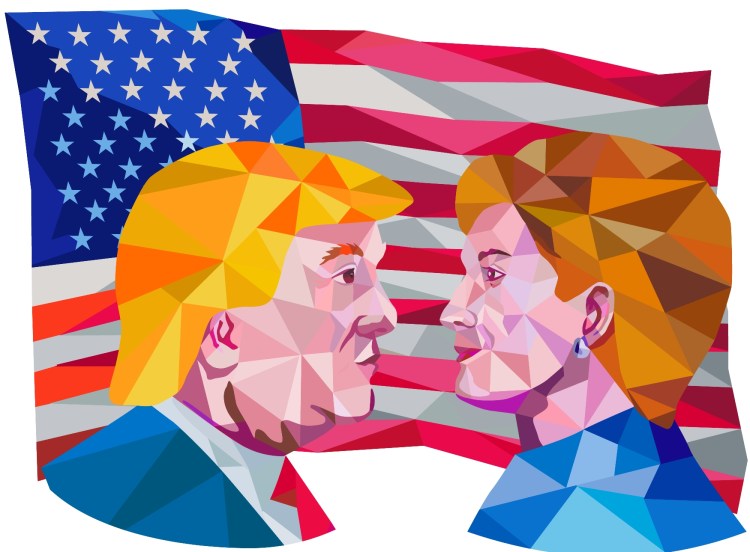When it came down to the issues during this amazing presidential election, technology-related policy got even less attention from the candidates than it typically does.
But that doesn’t mean that tech wasn’t central to this election. It absolutely was, even if it wasn’t in ways that shine the kindest light on Silicon Valley. Here are five big ones that really mattered.
Twitter: From the start, Trump owned Twitter. Not only was his following massive, but he ignited a wave of ultra-conservative followers who hounded Hillary Clinton on Twitter constantly. And for Trump, lacking a classic campaign infrastructure, Twitter became a giant megaphone. His tweets, mundane and outrageous, were dutifully reported by the mainstream media and became stories in and of themselves. In short, Twitter helped him scale his message in a way he probably could not have done in another age. Twitter had trouble finding a buyer recently, and its user growth may not be fantastic. But culturally speaking, Trump demonstrated its value like no one else.
Cybersecurity: Whoever was behind the hacking of Clinton’s campaign manager email, the leaks of those emails showed just how vulnerable we all are. It’s hard to say this single event cost Clinton the election. But a lot of people who supported Trump have been obsessively reading the 25-plus days of publications of the emails by WikiLeaks. And while many of the emails were open to interpretation, many were not and revealed an ugly side of internal campaign politics. In any case, hacking certainly had an influence.
Big data, big schmata: Following Obama’s two wins, his campaign’s massive investment in gathering data on voters to turn them out was widely praised, and many have tried to copy it. Supposedly, Clinton set up a similar operation that had her campaign pretty confident heading into the final vote tonight. And supposedly, Trump had almost none. Turns out, big data failed Clinton, likely making her over-confident and influencing her campaign’s failure to focus on key states that she ended up losing.
Polls, schmolls. Trump’s success is stunning in large part because almost every major poll was wrong. And so were aggregate and analysis sites like Real Clear Politics and FiveThirtyEight. There will be a lot of analysis about what these polls missed and why. But their reliability has been declining for years, particularly as voters move from landlines to mobile phones with unlisted numbers that make some segments harder to reach. Polling institutions have turned to a mix of online polling methods, which were roundly dismissed during this election when they overwhelmingly favored Trump after the debates. But whatever the truth, it’s fair to say that while we have more ways of communicating, we are less able to confidently forecast what’s going on in the world.
Fake news: If you haven’t read this BuzzFeed story about fake news mills in Macedonia, you really should. It says everything about news in the age of the internet. While traditional outlets like the New York Times and Washington Post were pumping out large volumes of investigative journalism in recent months, teenagers in Macedonia were churning out pro-Trump, anti-Clinton fake news stories that were widely read and shared. Thanks to tech and the internet, truth took a big punch in the mouth this year.
VentureBeat's mission is to be a digital town square for technical decision-makers to gain knowledge about transformative enterprise technology and transact. Learn More

